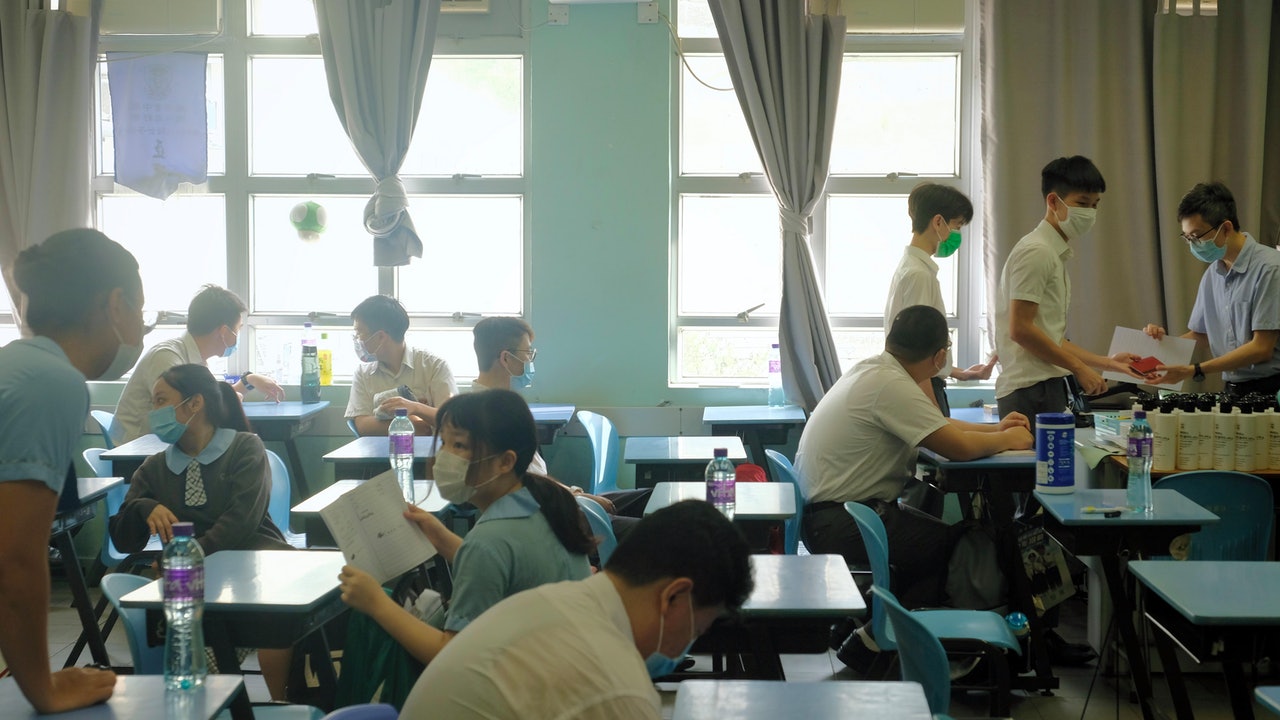Social News
Written by: Kuang Xiaobin
2020-12-02 20:47
Last update date: 2020-12-02 20:47
A survey conducted by the Faculty of Education of the Chinese University of Hong Kong found that mainstream local students have a relatively negative attitude towards entering tertiary education, and there is a problem of "mainstream becoming disadvantaged." On the contrary, ethnic minorities feel relatively positive about entering higher education, and they think that they have obtained tertiary education or A university degree can "see the world" and "improve social and economic status."
The survey results also show that nearly 30% of the interviewed high school students believe that their mothers are the most influential in entering tertiary education, followed by friends and fathers.
Some school principals believe that the school system in Hong Kong has regressed in the past decade and has become less and less diversified. For example, there were career-oriented courses and vocational training schools in the past, but the current high school courses are all becoming academic and it is difficult to be included in the high school curriculum. Explore other possibilities.
The principal suggested that subjects should be opened up for more internship space, or whether it is possible to explore whether some students should not take the Diploma of Secondary Education and choose other ways.
A survey conducted by the School of Education at CUHK found that mainstream local students have a relatively negative attitude towards entering post-secondary education, and the problem of "mainstream becoming weaker" appears.
(Provided by CUHK)
The team of Yuan Yuemei, an associate professor of the Department of Educational Administration and Policy of the School of Education of CUHK, collected valid questionnaires from 23 middle schools and more than 5,000 secondary 4-6 students in the form of questionnaires and interviews from October 2018 to May 2019. .
Among them, local mainstream non-sponsored students accounted for 39%, local mainstream subsidized students accounted for 22%, mainland arrivals and ethnic minorities (mainly South Asians) accounted for 12% and 14% respectively.
The results of the survey show that ethnic minority students’ self-ratings on various factors that affect further studies are higher than those of mainstream local students; students from the Mainland are “important others (i.e., support and companionship from parents, relatives and friends, etc.)”, The average self-evaluation scores of "Post-secondary Education Function" and "Self Belief" are also higher than those of mainstream local students.
In terms of "post-secondary education functions", the average self-evaluation scores of Mainland students and ethnic minority students in various projects are higher than those of mainstream local non-funded students.
The first two believe that obtaining a tertiary or university degree can "see the world" and "improve social and economic status."
The factor of "making family happy" is most important to minority students.
Some ethnic minority families do not know that they can use GCSE and International General Diploma of Secondary Education (iGCSE) Chinese subject scores instead of the Chinese subject scores of the Diploma Examination to apply for the mainstream local university joint admissions courses.
(Profile picture)
The survey asked the interviewee "the one who most influenced your progress to post-secondary education." The results showed that the most interviewed students believed that mothers had the greatest influence, accounting for 27.8%, followed by friends with 13.6% and fathers with 12.2%.
Yuan Yuemei pointed out that the results of the study also reflect that ethnic minority high school students from the Mainland generally face greater barriers to further education.
She quoted research data as saying that finance and resources are the biggest obstacles for ethnic minorities to enter higher education. Some families do not know that they can use GCSE and iGCSE Chinese subjects to replace the Chinese subjects of the HKDSE. Enroll in the mainstream university joint admissions courses in Hong Kong.
The team quoted research and interview data showing that the interviewed mainland students generally believe that if they fail to study in Hong Kong, they will return to the mainland to avoid English barriers; minority students are restricted by their Chinese ability. For example, there is a student who grew up in Hong Kong. An Indonesian student who was "over-stressed" during the Diploma of Secondary Education last year in the Chinese test and later developed a fever and therefore missed the test.
Ouyang Liqiong (fourth from left), the principal of Chen Zhenxia Middle School in Yuen Long, believes that in the past ten years or so, it has regressed and become less diversified.
(Provided by CUHK)
DSE 2021|VTC course online registration from Friday, the number of secondary six students drops by hundreds of places next year
DSE 2021|127 Mainland universities are exempting Hong Kong students from taking the test and accepting applications from March next year
DSE 2021|The Bureau of Examination and Assessment: Now accept registration until 10.19. Examination arrangements may be changed under the epidemic situation
Ouyang Liqiong, the principal of Chen Zhenxia Middle School in Yuen Long, said that her school itself recruits new arrivals. She believes that economic problems are one of the factors that hinder the upper class of non-local students. However, the biggest problem lies in the school system, which has increased in the past ten years. Backward, it has become less and less diversified. For example, in the past, there were generally career-oriented courses and vocational training schools, but the current high school courses are all becoming academic.
Another factor is that the options for tertiary courses are narrow. She believes that when students choose a subject, they usually choose their majors, but not every student wants to enter a tertiary institution, but is more suitable for career-oriented courses.
Ouyang Liqiong believes that if high school students are to increase their upper-class opportunities, they should be provided with more diversified development opportunities.
She continued that students with lower socioeconomic status are more innocent and helpless, and there is no support in the school system. The current high school curriculum generally revolves around the diploma exam, so it is difficult to explore other feasibility in the high school curriculum. "The government is doing the wrong way." She suggested that more internship space should be opened up in different subjects, or whether it is possible to explore whether some students should not take the HKDSE.
01News
Chinese University Education









